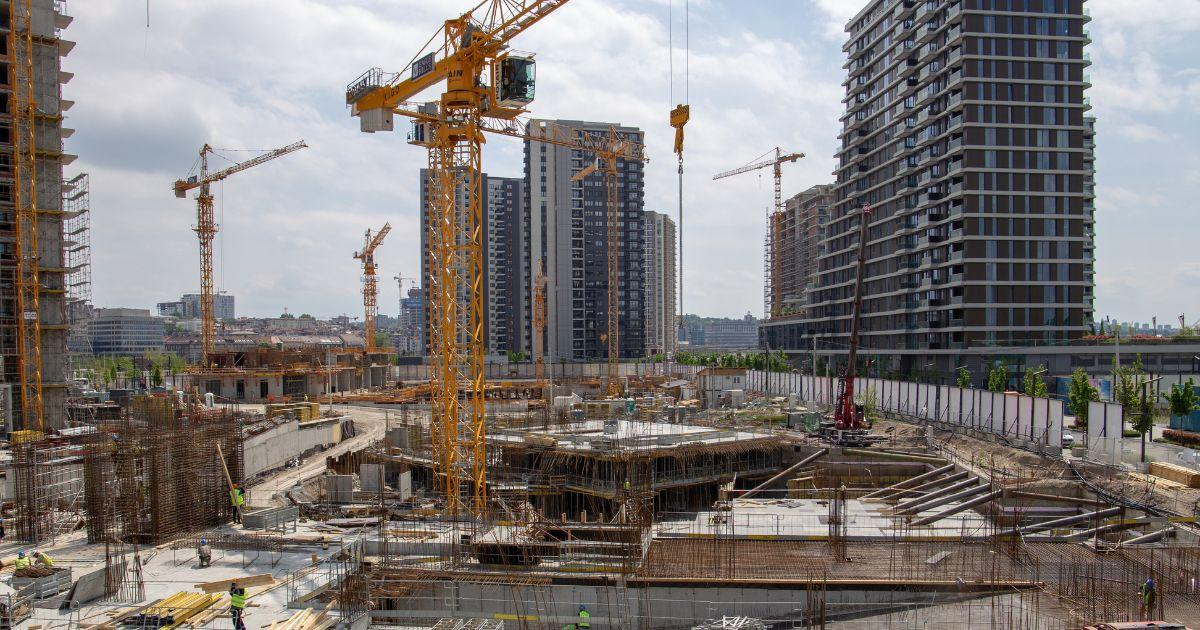The Spain Construction Market stands as a testament to the country’s rich architectural heritage, modern infrastructure development, and its resilience in the face of economic challenges. Spain, with its diverse landscapes and historical significance, has seen a dynamic evolution in its construction sector over the years, contributing significantly to the nation’s economic growth.
Historical Overview:
Spain’s construction history is deeply intertwined with its cultural and historical narrative. From the iconic Moorish architecture in Andalusia to the Gothic cathedrals of Barcelona and the avant-garde designs of modernist architects like Antoni Gaudí, the built environment reflects the country’s diverse influences. The post-Franco era marked a period of rapid urbanization and infrastructure development, laying the groundwork for the contemporary construction industry.
Economic Impact:
The construction sector has long been a cornerstone of Spain’s economy. Not only does it contribute significantly to the Gross Domestic Product (GDP), but it also plays a pivotal role in job creation and foreign investment. The sector’s resilience has been demonstrated through various economic cycles, with construction companies adapting to market fluctuations and evolving regulatory landscapes.
Key Players and Architectural Innovation:
Spanish construction firms have gained international recognition for their innovation and expertise. Companies such as ACS, Ferrovial, and Acciona have expanded their presence globally, contributing to major infrastructure projects worldwide. Spain’s architects, engineers, and construction professionals have been at the forefront of innovative design and sustainable building practices, positioning the country as a leader in the global construction arena.
Residential and Commercial Development:
The construction market in Spain has experienced notable trends in residential and commercial development. The real estate boom in the early 2000s led to a surge in housing construction, with coastal regions witnessing extensive development. The subsequent economic downturn, however, resulted in a housing market crisis, prompting a shift towards sustainable and affordable housing solutions. In recent years, there has been renewed interest in urban revitalization projects and smart city initiatives.
Infrastructure and Transport:
Spain’s commitment to infrastructure development is evident in its extensive network of highways, high-speed rail lines, and modern airports. The AVE (Alta Velocidad Española) high-speed train network, connecting major cities, stands as a testament to the country’s dedication to efficient and sustainable transportation. Ongoing projects, such as the expansion of the Barcelona-El Prat Airport and the development of smart highways, underscore Spain’s focus on cutting-edge infrastructure.
Sustainability and Green Building:
In response to global environmental concerns, Spain’s construction industry has embraced sustainable building practices and green construction technologies. Energy-efficient designs, the use of recycled materials, and the integration of renewable energy sources have become standard practices in many construction projects. This commitment to sustainability aligns with Spain’s broader efforts to address climate change and promote eco-friendly urban development.
Challenges and Future Outlook:
Despite its successes, the Spain Construction Market faces challenges such as regulatory complexities, skilled labor shortages, and the need for continued innovation. The industry’s ability to navigate these challenges and adapt to emerging trends, including digitalization and Building Information Modeling (BIM), will shape its future trajectory. As Spain continues to invest in infrastructure, sustainable construction, and smart city initiatives, the construction market is poised for continued growth and global influence.
Government Initiatives:
Government initiatives play a crucial role in shaping the Spain Construction Market. Policies promoting sustainable construction, energy efficiency, and urban renewal have been instrumental in guiding the industry towards a more resilient and environmentally conscious future. The Spanish government’s emphasis on public-private partnerships and investment in research and development further underscores its commitment to the growth and innovation of the construction sector.
Technological Advancements:
Spain’s construction industry is embracing technological advancements to enhance efficiency and productivity. Building Information Modeling (BIM), 3D printing, and drone technology are increasingly being integrated into construction processes, facilitating better project management, reducing costs, and improving overall project outcomes. These technological investments position Spain as a forward-thinking player in the global construction technology landscape.
Tourism and Hospitality:
Spain’s thriving tourism industry has driven demand for construction in the hospitality sector. The construction of hotels, resorts, and recreational facilities has become a significant focus, particularly in popular tourist destinations. This trend not only stimulates economic growth but also presents opportunities for architects and construction companies to showcase their expertise in designing and building world-class hospitality infrastructure.
Post-Pandemic Resilience:
The COVID-19 pandemic brought unprecedented challenges to the global construction industry, including Spain. However, the sector has demonstrated resilience by adapting to new health and safety protocols, accelerating digital transformation, and rethinking urban planning in response to changing societal needs. As the country recovers, the construction market is playing a vital role in stimulating economic growth through infrastructure projects and job creation.
Collaboration with International Partners:
Spanish construction firms actively engage in collaborations with international partners, participating in projects that span continents. These collaborations not only contribute to the global exchange of construction expertise but also position Spain as a preferred partner for major infrastructure developments. The synergy between local knowledge and international experience enhances the competitiveness of Spanish construction companies on the global stage.
Future Trends:
The future of the Spain Construction Market is marked by a continued focus on sustainability, digitalization, and innovation. The adoption of smart building technologies, the integration of renewable energy solutions, and the development of resilient urban infrastructure are expected to be key trends. Additionally, addressing the affordable housing challenge and promoting inclusive urban development are likely to shape the industry’s trajectory in the coming years.
